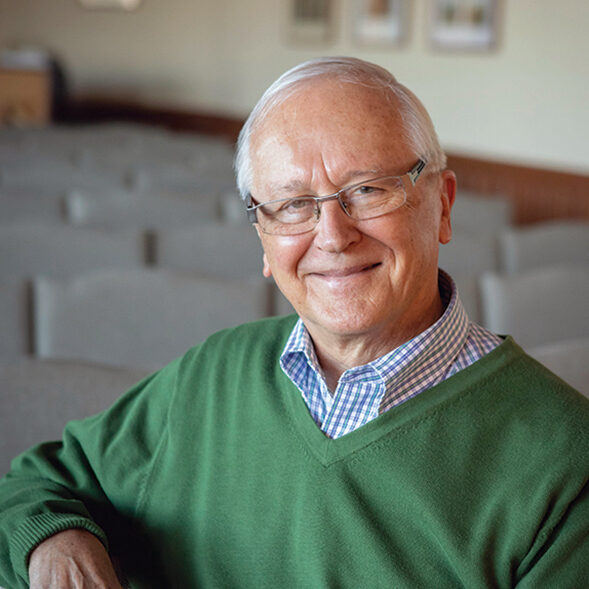 |
Scripture is the revelation of God—his message from above to all of us here below. Its primary message is the gospel, and that’s the power to open our understanding to what God has done for flawed and sinful humanity. Once God opens our minds and hearts through the gospel, we embrace God in love and understand what that love means for eternity and life here.
“Unless I am convinced by the Scriptures,” Luther said at Worms. The Holy Spirit had opened Luther’s heart, and he boldly asserted that he would not believe anything except the Scriptures. His critical confession confirmed his faith in the Bible and set him against anyone who asserted what could not be proven from the Scriptures. He was bound by the Scriptures.
In the days after his words on April 18, 1521, an imperial committee lobbied Luther to change his mind. He told them that he was willing to submit his writings to the judgment of a church council, but on the condition that his writings would be judged only in accordance with the Scriptures and not by the decrees of church scholars and leaders. The committee could not agree with that. So, under safe conduct, Luther left Worms for the journey back to Wittenberg.
Like the believers before and after Luther, our allegiance is to the Scriptures.
Luther’s commitment to Scripture alone set the thinking of the church on its ear. The church was content to live with its organization and learning as the standard for truth. At the time, all the laws, councils, and officials determined what should be believed and what should be rejected. If you disagreed, as Luther did, you were deemed an enemy not only of the church but also of the state. When the Diet issued the Edict of Worms, it proclaimed that Luther and all who agreed with him were guilty of high treason and were to be treated as criminals.
Luther had a different view. The church’s traditions, history, and leadership did not determine what to believe and what to reject. The Bible did. The Bible made the church; the church’s decrees and traditions did not make the Bible. It was arrogance and impudence for an organization that calls itself “the church” to stand in judgment over the Bible and determine what to believe and not believe.
So here we are 500 years after Luther’s confession at Worms. Through the ages, even before Luther, believers have come into existence by the power of the Holy Spirit through the gospel. The church was always simply the collection of believers in Jesus—the holy Christian church we confess in the Apostles’ Creed. Those believers owed their allegiance to the Scriptures that had made them Christians.
The Holy Spirit has also made us believers through the gospel. We are the church here and now. Like the believers before and after Luther, our allegiance is to the Scriptures. The words of the Bible written down by those who knew Jesus have revealed the gospel and brought us to faith. Now we face some of the same false ideas Luther did and many more. Without fail, those who endorse such ideas all want us to believe their thoughts and reject what the Scriptures say. But we are called to test what we hear and see (1 Thessalonians 5:20,21) and base our judgment on the standard of Scripture. That may make us seem strange to others. It may even bring ridicule and perhaps persecution. But you and I can also say, “Unless I am convinced by the Scriptures, I will not abandon what God has revealed in the Bible.”
Learn more about Luther’s confession at Worms through this video reenactment of his speech at the Diet of Worms.
Author: John A. Braun
Volume 108, Number 4
Issue: April 2021
- We have love
- We have hope
- We have faith
- I come
- Love one another
- Palmetto palms and wrens
- Fathers
- Mother’s Day
- Believe the Word
- The Judas priority
- In Christ
- A thought: Mary
- Come, Lord Jesus!
- A thought: Here we stand!
- A thought: Obedience
- A thought: Hope
- A thought: Almighty God
- A thought: Scripture alone
- A thought: Their message to us
- A thought: The Ides of March
- A thought: The path of the righteous
- A thought: The Bible still matters
- A thought: Happy birthday, Brother!
- A thought: Change
- A thought: Our Father
- A thought: The difference
- A thought: Imperfect world, imperfect life
- A thought: Joy and peace today and everyday
- A thought: Good job!
- In God’s hands
- A thought: Outing death
- A thought: The Christ
- A thought: Trusting what we cannot see
- A thought: Partners
- Heirs of heaven
- Hope
- The Avengers and two lions
- Faith in Jesus
- God’s policy of love
- Lord, have mercy!
- Light in the darkness
- Why?
- The shroud
- A Lutheran Lent
- Where is God?
- Turning pages







